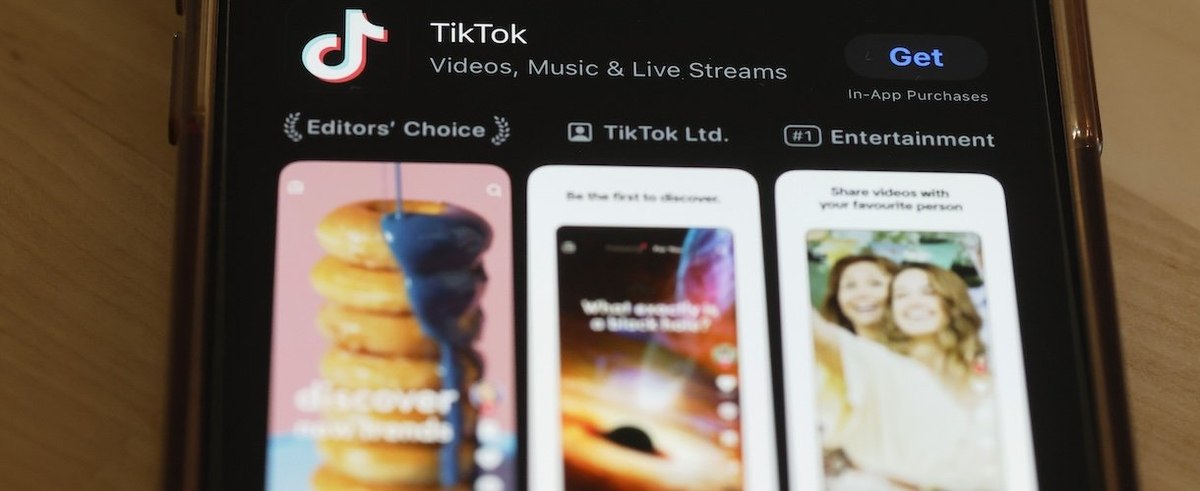Most American adults have unfavorable views of the social network TikTok and more would support a law requiring TikTok's Chinese owners to sell it than would oppose one. Younger adults are the most likely to use TikTok and the most likely to oppose such a law.
An Economist / YouGov Poll conducted March 16 - 19, 2024 finds that 25% of Americans say they use TikTok, which is less than social networks such as Facebook (75%), Instagram (47%), and X (33%), but more than Reddit (17%) and Discord (8%).
TikTok, like most social networks, is used more often by younger people. 46% of adults under 30 use TikTok, compared to 9% of those who are 65 or older.
Overall public opinion of TikTok is negative: 30% have a very or somewhat favorable view of the social network and 53% an unfavorable one.
Sentiment about TikTok is most negative among Americans 65 or older: 13% have a favorable view of TikTok and 63% have an unfavorable view. TikTok is more popular among younger Americans, but even adults under 30 are divided, with 45% favorable toward TikTok and 47% unfavorable.
Americans divide closely on whether TikTok is a national security threat: 38% say it is while 34% say it isn't.
TikTok’s users feel differently: 76% of them have a favorable opinion of TikTok and 68% say it is not a security threat.
Half of Americans back a potential TikTok ban
A proposed law banning TikTok in the U.S. unless its Chinese owners sell the social network is viewed with some degree of approval by 49% of Americans, while 28% strongly or somewhat disapprove.
Presumptive Republican presidential nominee Donald Trump has urged Congress not to pass a ban on TikTok, but Republicans are more likely to approve of a TikTok ban (66% approve) than Democrats (40%) or Independents (42%).
Older Americans and those who don't use TikTok are more likely to approve of a TikTok ban, while younger Americans and TikTok users are more likely to disapprove.
TikTok usage, not age alone, drives opposition to a potential ban
Older people are more likely to support a potential TikTok ban and younger people are more likely to oppose it. But TikTok users are much more likely to oppose a ban than non-users, and TikTok users are disproportionately young. YouGov polling suggests that TikTok usage — and not age alone — is the dominant factor shaping views of a potential TikTok ban.
In a separate March 15 YouGov survey of 5,434 U.S. adults that asked about support for "the U.S. government banning the social video-sharing app TikTok," adults under 30 who didn't use TikTok were only slightly more likely to oppose a ban than were non-TikTok users between the ages of 30 and 65, and similar shares of non-TikTok users in those age groups say they would support a ban.
Among TikTok users, the 50% of 18- to 29-year-olds who oppose a ban was nearly identical to the 51% of those 65 or older who do.
— Carl Bialik contributed to this article
See the toplines and crosstabs from the Economist/YouGov poll conducted on March 16 - 19, 2024 among 1,682 U.S. adult citizens.
See the results from the March 15 YouGov poll:
- How often do you use TikTok?
- Would you support or oppose the U.S. government banning the social video‑sharing app TikTok?
- Do you believe TikTok does or does not pose a national security threat to the U.S.?
Methodology: Respondents for the March 16 -19 Economist / YouGov Poll were selected from YouGov’s opt-in panel using sample matching. A random sample (stratified by gender, age, race, education, geographic region, and voter registration) was selected from the 2019 American Community Survey. The sample was weighted according to gender, age, race, education, 2020 election turnout and presidential vote, baseline party identification, and current voter registration status. Demographic weighting targets come from the 2019 American Community Survey. Baseline party identification is the respondent’s most recent answer given prior to November 1, 2022, and is weighted to the estimated distribution at that time (33% Democratic, 31% Republican). The margin of error for the overall sample is approximately 4%.
The March 15 survey was conducted online among 5,434 U.S. adults. The sample was weighted according to gender, age, race, education, U.S. census region, and political party.
Image: Getty (Michael M. Santiago)











